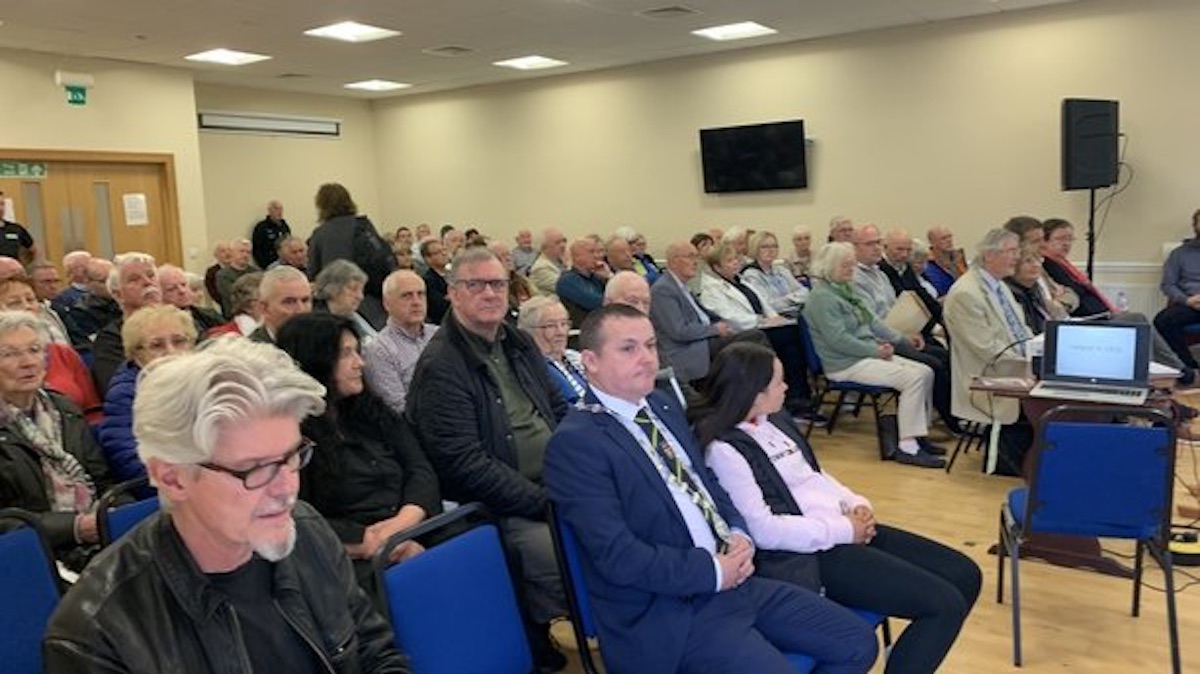
Last weekend marked the centenary of a Donegal-Fermanagh border battle, part of the doomed ‘Northern Offensive’ campaign said to have been encouraged by Michael Collins to unite supporters and opponents of the Anglo-Irish Treaty to challenge the partition of Ireland it helped to bring about.
Events have been taking place to mark the centenary of a fortnight-long battle along the Donegal-Fermanagh border.
In the weeks before the outbreak of the Civil war, pro- and anti-treaty Volunteers fought side-by-side, against British forces.
The activity centred around the villages of Pettigo and Belleek. The engagement lasted just under two weeks, from 27 May to 8 June 1922.
Launched as part of the Northern Offensive, to undermine the new six county State, it met with a determined British response.
That involved RAF cover for artillery strikes on the villages, as well as the influx of troops from Derry and Omagh, to see off the Republican challenge.
Descendants of those who were involved in the battle gathered on Saturday to remember their efforts and consider its aftermath. Sons and daughters of those that participated were joined by nieces, nephews and grandchildren of the volunteers.
The day began with a series of lectures and discussions in Pettigo. It continued with a walking tour of the village, followed by a trip to Belleek in the afternoon.
The commemoration was jointly organised by the County Museums in Donegal and Fermanagh. Those who travelled for the day’s events spoke with pride at the memory of the campaign.
Noreen Butler’s father, Jim Scallon, was one of those who took part in the battle. She recounted how Michael Collins told him the ultimate aim of the confrontation was to trigger the Boundary Commission into moving Fermanagh, south Tyrone and south Armagh into the Free State.
Wearing the Military Service medal presented to her dad, Ms Butler spoke of how important it was that the history of the time was safeguarded and passed on.
Those sentiments were shared by Pat McCusker, from Dromore, in County Tyrone. His grandfather and grand uncle were involved in events here a century ago.
Mr McCusker feels their legacy lives on in discussion and debate about the weeks that preceded the civil war. He says it’s important that people learn from the past, so mistakes are not repeated in the future.
All those who recalled their ancestors’ roles were cognisant of how their lives form part of their wider family history. John Fullerton’s uncle, Patrick Flood, was just 19 when he died in the battle.
Speaking to RTE television, Mr Fullerton said that his own mother kept her brother’s memory alive and emphasises how the events in Pettigo and Belleek have resonated deeply through the decades.
“Even though our family left here and travelled all over the world, this is always the place we’ll call home. It never leaves us”.
![[Irish Republican News]](https://republican-news.org/graphics/title_gifs/rn.gif)
![[Irish Republican News]](https://republican-news.org/graphics/title_gifs/harp.gif)

